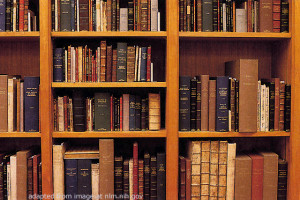JRL NEWSWATCH: “The State of Russian Studies in the United States: 2022” – ASEEES

The State of Russian Studies in the United States: 2022 [Excerpt]
[Click here for full text PDF]
An Assessment by the Association for Slavic, East European, and Eurasian Studies ASEEES August 2023
Authors: Theodore P. Gerber (Principal Investigator), University of Wisconsin Madison
Michael Zaslavsky (Research Assistant), University of Wisconsin Madison Advisory
Advisory Committee:
Bella Grigoryan, University of Pittsburgh
Juliet Johnson, McGill University and ASEEES
Lynda Park, ASEEES
Karen Petrone, University of Kentucky
Alexandra Vacroux, Harvard University
“… Given the severity of the challenges facing the field and … unfavorable trends from the prior period, it is in fact somewhat surprising that the field did not suffer more sweeping declines than it did in the years preceding Russia’s full-scale invasion of Ukraine. … The overall picture in early 2022 [prior to the invasion] remained one of impressive Russia-related research activity by U.S.-based scholars, despite … challenges posed by … COVID-19 … and growing U.S.-Russia tensions. They continued to publish a robust (if declining) quantity of different types of works about Russia in a variety of venues on a wide range of topics using diverse methods and data sources. Almost three quarters of … active researchers … sample[d] received grant funding … [most commonly from] the U.S. federal government …. Compared to the troubled waters … Russian studies had to navigate previously, Russia’s full-scale invasion of Ukraine … hit … like a tsunami. Public and political opinion in most countries of the Euro-Atlantic alliance and its allies in Asia and the Pacific was immediately appalled by the Russian government’s actions … [M]any commentators blamed not only the regime, but also the Russian people for … an unprovoked, unjustified, and inexcusably brutal war …. Within Russia, the invasion was quickly followed by a severe intensification of government crackdowns on dissent, a mass exodus of scholars and other highly educated professionals, and a broad retreat of the society into a world defined by state propaganda, with economic, educational, and cultural ties to the West all but completely severed. These developments made collecting reliable historical and social science data within Russia impossible and research travel to Russia inconceivable, imperiled Russia-based scholars who had been conducting research about Russia in the social sciences and humanities, raised questions about how well U.S.-based Russian experts … understood Russia’s political trajectory, and spurred urgent calls to ‘de-colonize’ Slavic, East European, and Eurasian studies and ‘de-center’ Russia …. [For] U.S. policymakers and … think tanks [addressing Russia] … the exigencies of responding to the full-scale invasion quickly crowded out all other considerations. … [P]olarization of … [Russia-related] viewpoints … … intensified, leading many to despair of the chances of invigorating policy discussions with arguments rooted in … nuanced, deep, and innovative perspectives …. Russia’s war on Ukraine left many scholars of Russia reeling …. [D]ata show that the war has … pushed some U.S.-based researchers away from doing research on Russia, and many have ended ongoing collaborations with Russian scholars and institutions. … offset slightly by researchers initiating new projects on Ukraine and other countries in the region and by starting new collaborations with Russian scholars … [now] displaced from Russia ….”
While enrollment in Russian-language courses declined, enrollment in Ukrainian language courses increased significantly.
Meanwhile, some researchers anticipated that the Russo-Ukrainian War would actually increase interest in Russia as a subject of inquiry.
